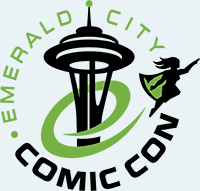By Manon Hume

Much of the problem, the panelists held, lies in the fact that many joined the comics industry young and learned that certain behaviors are okay despite the fact that they are not. These mentalities – such as “paying your dues,” Edidin noted with a cringe – lead to toxic and hostile workplaces that can border on the dysfunctional. Gilly, contributor to the Mine! And Femme Magnifique Comics anthologies, called attention to the fact that publishers do not establish boundaries well enough. Seeing a coworker rewarded or promoted despite harassing another employee can lead to employees normalizing and mirroring that behavior.
“There has to be a space for learning, safety, and accountability,” Edidin agreed.
Ayala also noted the need to address and correct these behaviors, citing it as a larger societal problem. According to Ayala, a large part of this comes down to checking our own behaviors and reaching out to others to learn how those behaviors could be affecting them. The writer for DC, Dark Horse, and more added that it can be difficult to know where the line is for some people, so communication is an important part of the process. Having that conversation can be difficult; Ayala cited it as the “lettuce in your teeth” conversation while Edidin referred to it as the “your fly is down” conversation, a situation of ignorance which may be met with embarrassment but cannot continue without becoming intentionally aggressive. Ayala warns against becoming defensive or aggressive if someone approaches you to talk about a behavior that makes them feel uncomfortable, unsafe, or unwelcome.
Learning to listen then becomes the other side of the equation. Jones said that he was lucky his first job was with Oni Press, where he works as a publisher, because it taught him the value of putting himself in other people’s shoes and listening to their opinions. He spoke about the importance of disability inclusion in comics – especially by making conventions, publishers, and more ADA-compliant – and derided the idea that because creativity can be difficult to understand, toxic behaviors can be excused as eccentricities or as part of a person’s process.
“So what can we do?” was the common refrain throughout the discussion. All the speakers agreed that there are many steps and approaches we can take, both big and small, to make the industry better. Edidin’s declaration of the importance of explicit guidelines applied not only to workplace relationships and environments, but to conventions and other industry-related spaces. As a consultant for the creation of these guidelines, he pointed to the fact that human social behaviors may not work as well in larger settings as in familiar ones, meaning that behaviors we may consider normal are not acceptable to others.
Another important step is the creation of a profession organization, such as a union, for those involved in comics. This idea has been floated in the industry before; in this context, an organization could provide a space for journalists, freelancers, creators, and more to establish practices and have discussions that would allow employees to feel safe and represented. Until such an organization is founded, Edidin said it is important to share information and continue talking with others in the industry because “it is an employers’ market,” and secrecy and paranoia can be mitigated by open communication.
Other solutions grow from a more individual level. Gilly spoke about how a fundamental change from “treating others as we would like to be treated” to “treating others as they would like to be treated” would improve not only comics, but interpersonal relationships in general. Likewise, Ayala talked about navigating issues between newcomers to the industry and veterans.
Generationally, younger people are more likely to not put up with toxic behaviors, and that can lead to difference of opinions and approaches from older mentors or employees. Ayala felt that it’s important to respect and empathize with what others in the industry may have gone through, but also noted that doesn’t mean we have to wait to rise to their position to address harassment or other destructive behaviors.
For those outside the industry, joining organizations that support workers and their rights and putting pressure on publishers is a key step in making things better. It’s not only about calling them out when they do something wrong, but about boosting them up when they do something right.
As the panel ended, many others in the comics industry rose to greet the panelists, including Jim Demonakos. Their presence, along with the engagement of the attendees, showed the importance of this discussion in a profound way.






